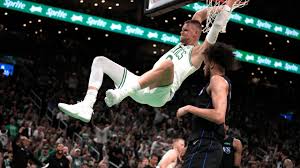How to form a close-knit team of Indie games developers
If you are a novice game developer, then most likely you have the idea of a cool game that you do not mind implementing. Of course, you probably don’t have all the talents or time you need to develop this game yourself. It is at this point that you should come up with the idea of creating your own small team of indie developers, as happened with some of the most successful indie developers. The fact is that the development of the game involves several roles, which are rarely performed by one person. Since you do not have the necessary skills – and each of them may take a lifetime – you must find others who can help you.
Programmer
Your idea may be better, but without a programmer it will probably never come true. A computer programmer is a guy or girl who will spend most of their time developing a code base and tools for the game. Please note that the programmer usually does more than just encodes the game while in an indie team. They will also take responsibility for debugging and beta testing to make sure that the games are polished and acceptable.
Game designer
Of course, it is good to have a leading designer who has a decisive word in decision-making and keeps the 2d game art design loyal to the original idea. This implies that any new ideas that will actually be implemented will add experience and excitement. The designer must also support some game design document that will be used by the rest of the team. If they ever need a resource to view, the current game design document will always be at hand.
The artist
An artist is a role that you can often find in the indie game development team. This is because creating art takes time and creates what players see when they play, which makes it a vital element of your project. Working in close cooperation with programmers, designers or even writers, artists will create visual effects of the game. It all starts with concept art before moving on to the content that will appear in the game, including background, animation, etc. Artists also make sure that the content they create meets the technical requirements and creates a general sense of play. It is desirable that you have more artists if your game requires it, for example, if you are making a 3D platformer. But if you create a retro platformer, then one artist can cope with creating pixel graphics and animation.
Sound engineer/Composer
Sound can matter because it is a vital element for giving the atmosphere to the game. Even if it’s not a horror that needs scary music to enhance sensations, you will still want a memorable melody that will accompany the passage of your puzzle game or action platformer. There are many novice game sound engineers, and if you need one, you should pay attention to specialists who have been engaged in such work before. For example, you will want to find someone who has already made chiptune music for other games if this is the musical style that is suitable for your project.
Project manager
The project manager is the one who sets deadlines for the team and ensures that they are executed. Also, the work of the project manager includes motivating team members who are lagging behind and checking that everyone is performing their tasks. If there is a person in your team who performs the role of project manager, he must monitor the motivation of the whole team, and that all work is carried out on time. This is due to the fact that very often indie developers easily lag behind and may not meet the deadline, so they do not have a publisher or a higher-ranking person who breathes in the back.
Follow https://kevurugames.com/hire-game-designers/ for more.
Quality control/Tester
Ideally, everyone in the team should be a tester and report errors that are detected in new builds. It makes sense, because all of you will play your game, which will help the faster development of the project. It is also not bad to have a person in the team who will specifically search for mistakes. It can be your friends or people who supported your crowdfunding campaign, or anyone who can and likes to play games, and at the same time knows how to describe in detail what went wrong.
Producer
The role of producer can be played by someone who already participates in the team, but at the same time knows how to manage business processes. If you make your game not only for fun, you probably want to sell it and earn some money. The producer is engaged in the development of marketing strategies, cash flow reduction and economic evaluation. How much should the game cost so that you can make a profit after its launch and how much will you have to invest in its development? The producer must find an answer to all these questions.


